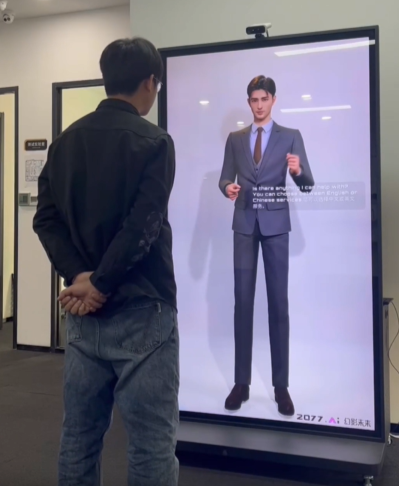 2024-10-18 11:20:13
2024-10-18 11:20:13

In the fast-paced world of customer service, businesses are always on the lookout for innovative solutions to enhance user experience. Enter AI Self-Service Kiosks—a game changer in how industries engage with customers. With the integration of conversational AI, these kiosks are not just a means of self-service; they are becoming intelligent assistants capable of handling complex interactions. This article explores how conversational AI is reshaping the functionality of self-service kiosks, the trends in this technology, and the advantages of deploying AI-powered kiosks in the service industry.
The Evolution of Self-Service Kiosks
Self-service kiosks have been around for years, primarily offering basic functionalities such as check-ins at airports, ordering at fast-food restaurants, and ticket purchasing. However, the introduction of conversational AI has taken these kiosks to a whole new level. Today’s AI Kiosks can engage in meaningful dialogue with users, providing personalized experiences that traditional kiosks simply cannot match.
Natural Language Processing (NLP): Conversational AI utilizes NLP to understand and interpret user inquiries in real-time. This allows kiosks to handle complex requests more efficiently.
Personalization: AI algorithms analyze user data to provide personalized recommendations, improving customer satisfaction and engagement.
Multilingual Support: With conversational AI, kiosks can communicate in multiple languages, catering to a diverse customer base and enhancing accessibility.
Contextual Understanding: AI kiosks can remember previous interactions and provide contextually relevant responses, creating a more seamless user experience.
24/7 Availability: Unlike human staff, AI kiosks can operate around the clock, offering assistance whenever customers need it.
The development of conversational AI is evolving rapidly. Here are some notable trends:
Voice Recognition: Voice-activated kiosks are becoming increasingly popular, allowing users to interact hands-free. This is particularly beneficial in environments where touchscreens may not be hygienic.
Integration with IoT: The Internet of Things (IoT) is being leveraged to enhance kiosk functionality, enabling real-time data collection and analysis for better service delivery.
AI Virtual Personas: Many companies are now introducing AI virtual characters that represent the brand’s identity, making the interaction more engaging and relatable for customers.
Increased Efficiency: With AI handling routine queries, human staff can focus on more complex customer needs, leading to better resource allocation.
Cost-Effectiveness: AI kiosks reduce the need for extensive staff training and can operate with minimal supervision, significantly cutting labor costs.
Enhanced Customer Experience: The ability to interact with a kiosk in a natural, conversational manner makes users feel valued and understood, leading to higher satisfaction rates.
Data Insights: AI kiosks can collect valuable data on customer interactions, preferences, and behavior patterns, which can inform future business strategies.
According to a recent study by the International Journal of Human-Computer Interaction, businesses that implemented AI kiosks reported a 30% increase in customer satisfaction and a 25% reduction in wait times. Furthermore, 70% of respondents indicated they preferred using AI-powered kiosks over traditional ones for their convenience and efficiency.
As industries continue to evolve, the integration of conversational AI into self-service kiosks is set to redefine customer interactions. By enhancing functionality, personalizing experiences, and improving efficiency, AI kiosks are proving to be invaluable assets in the service sector. The future is bright for these intelligent systems, and businesses that embrace this technology will likely stay ahead of the curve.
